International
The Supreme Court of Mexico opens a debate to review the controversial reform of the Judiciary
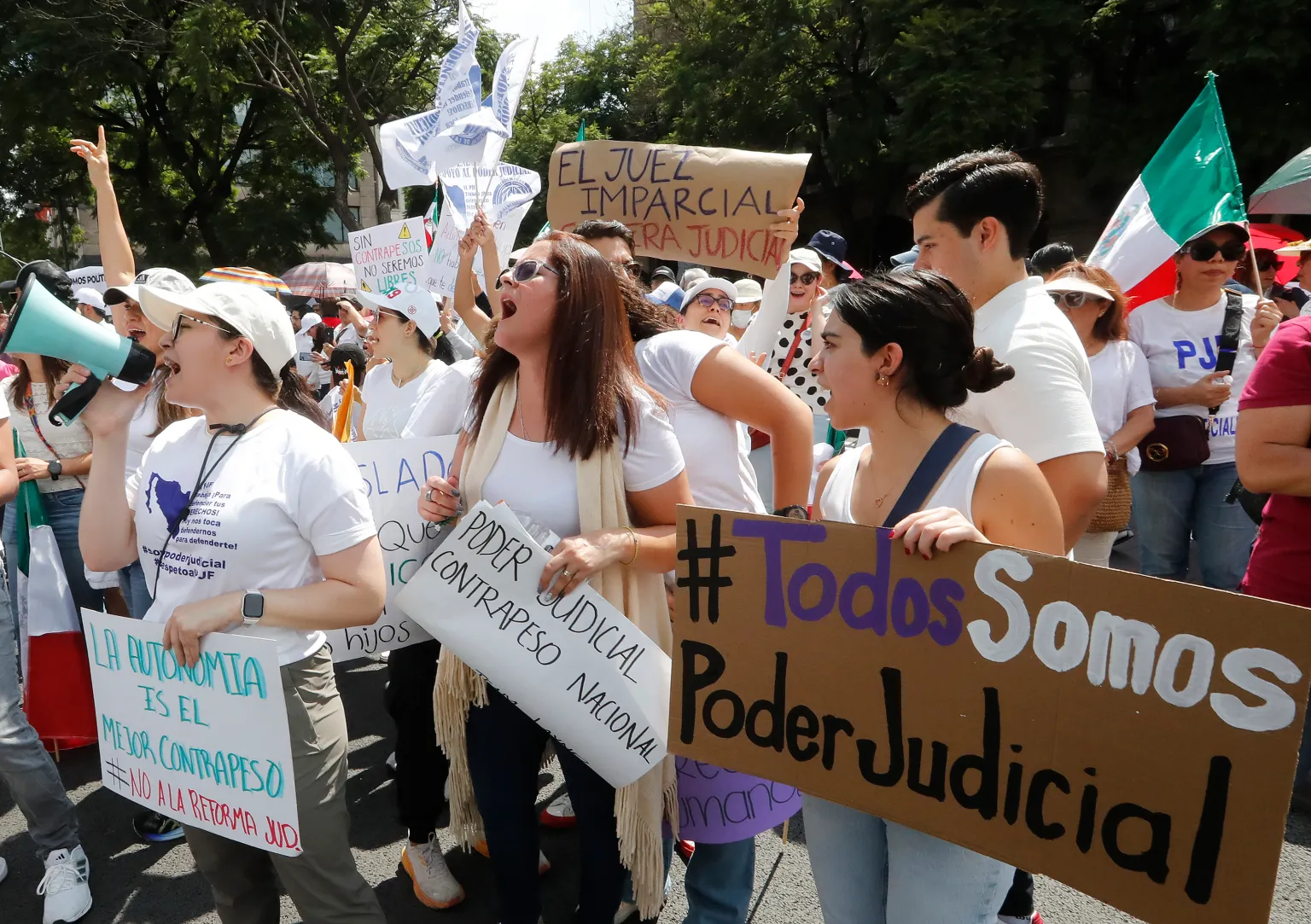
The Supreme Court of Justice of the Nation (SCJN) of Mexico opened a controversy this Thursday to decide whether it has the power to review the constitutional reform to the Judiciary of the Federation (PJF), which seeks to elect judges and magistrates by popular vote.
The decision, which was given after a majority vote of eight votes to three, admitted one of the challenges of judges and magistrates against the aforementioned reform, to analyze whether the high court can review the constitutional amendment.
The controversial judicial reform, promoted by former President Andrés Manuel López Obrador (2018-2024) and promulgated on September 15, has raised criticism from various international organizations that claim that the rule of law in the country is at risk.
The Plenary of the SCJN agreed to open a dispute of those provided for in the Organic Law of the PJF, originally created to resolve conflicts within said Power.
“For this Plenary, there is no doubt that fraction XVII of article 11 is the ideal way to process a petition such as the one that motivated this consultation, that is, one in which justice makers ask this Court to verify whether the reform of the Constitutional text published on September 15, 2024, is compatible or not with judicial guarantees and principles, including the division of powers, judicial independence, as well as those inherent to the Constitutional Rule of Law,” the judgment points out.
The aforementioned amendment will cause more than 1,600 judicial positions to be elected by popular vote, in elections, a system that leaves the members of the PJF in a situation of uncertainty.
Can the reform of the Judiciary in Mexico be reviewed?
Prime Minister Piña Hernández, rapporteur Juan Luis González Alcántara, Jorge Mario Pardo Rebolledo, Margarita Ríos Farjat, Alfredo Gutiérrez Ortiz Mena, Luis María Aguilar Morales and Javier Laynez Potisek voted in favor of the project.
While ministers Lenia Batres, Yasmin Esquivel and Loretta Ortiz, related to former President López Obrador, voted against.
Batres defended that the Supreme Court “does not have the power to submit to review changes to the Constitution approved by the Legislative Branch because it would violate the principle of constitutional supremacy, as well as the division of powers and the Constitutional Rule of Law.”
The minister also said that the SCJN “is attempting a coup d’état,” it seeks to act in a tyrannical and despotic way since it intends to give itself the power to revise the Mexican Constitution.
Sheinbaum supports the reform
The president of Mexico, Claudia Sheinbaum, defended last Tuesday, during her inauguration, the reform of the Judiciary and pointed out that it is not “authoritarianism” but, in essence, it is democratic.
“How is a decision going to be authoritarian that, in essence, is democratic and allows the people to decide?” the president said during her speech in the Mexican Congress.
He said that the objective is to end corruption in the Judiciary and for this, he recalled, there will be a single call in addition to a selection committee of candidates to ensure that they meet the requirements.
“And who will decide? It will be the people,” he emphasized.
He also took the opportunity to tell the workers of the Judiciary that their rights and salaries “are fully safeguarded.”
International
Maduro signs Economic Emergency Decree to counter U.S. sanctions on Venezuela
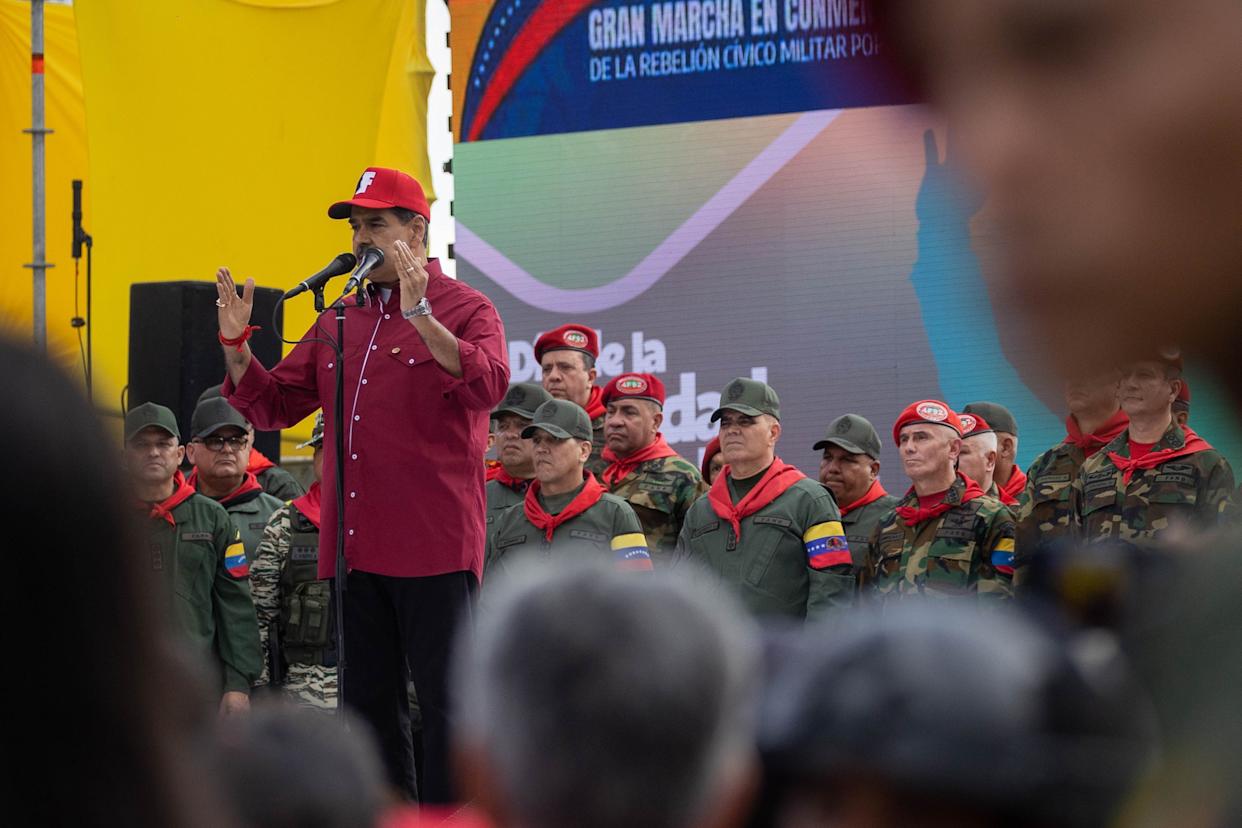
The National Assembly of Venezuela approved on Thursday an economic emergency decree presented this week by the government of President Nicolás Maduro, in response to sanctions and tariffs imposed by the United States.
In March, the government of Donald Trump began suspending licenses for foreign oil companies operating with the state-owned Venezuelan oil company PDVSA and imposed secondary tariffs on crude oil and gas exports. Maduro signed the decree on Tuesday, invoking constitutional articles that allow him to declare states of exception, temporarily restrict constitutional guarantees, or declare a state of emergency in the event of disasters, public calamities, or events that seriously threaten the country’s security.
The emergency decree “is to support national production,” said Delcy Rodríguez, Vice President and Minister of Hydrocarbons, during the document’s presentation.
“The affected oil markets, the fall in oil prices, have already surpassed 30% in our measurement, and this, as we say, is just the beginning,” Rodríguez stated, clarifying that Venezuela’s oil and gas production continues.
Rodríguez also mentioned that foreign oil companies are welcome to operate in Venezuela in accordance with local laws.
The United States has set a deadline of May 27 for oil companies operating in Venezuela, including Chevron (U.S.), Eni (Italy), and Repsol (Spain), to wind down their operations and exports.
The decree grants Maduro the authority to implement measures he deems necessary to ensure economic growth, contain inflation, offer special treatment to investors, suspend taxes, or apply exceptions to tax laws, and establish import substitution mechanisms, among other measures.
Maduro and his government have consistently rejected sanctions imposed by the United States and other countries, arguing that they are illegitimate measures constituting an “economic war” designed to cripple Venezuela.
The president and his allies have celebrated what they describe as the country’s resilience despite these measures, although they have historically attributed some economic difficulties and shortages to the sanctions.
This is not the first time Maduro has governed under an emergency decree. In 2016, he signed a similar decree, which was extended until 2021 under the argument of sanctions imposed on Venezuela by Washington.
With the Assembly’s approval, the decree must now be sent to the Constitutional Chamber of the Supreme Court of Justice.
Central America
U.S. Government says deported migrants should remain in El Salvador for life
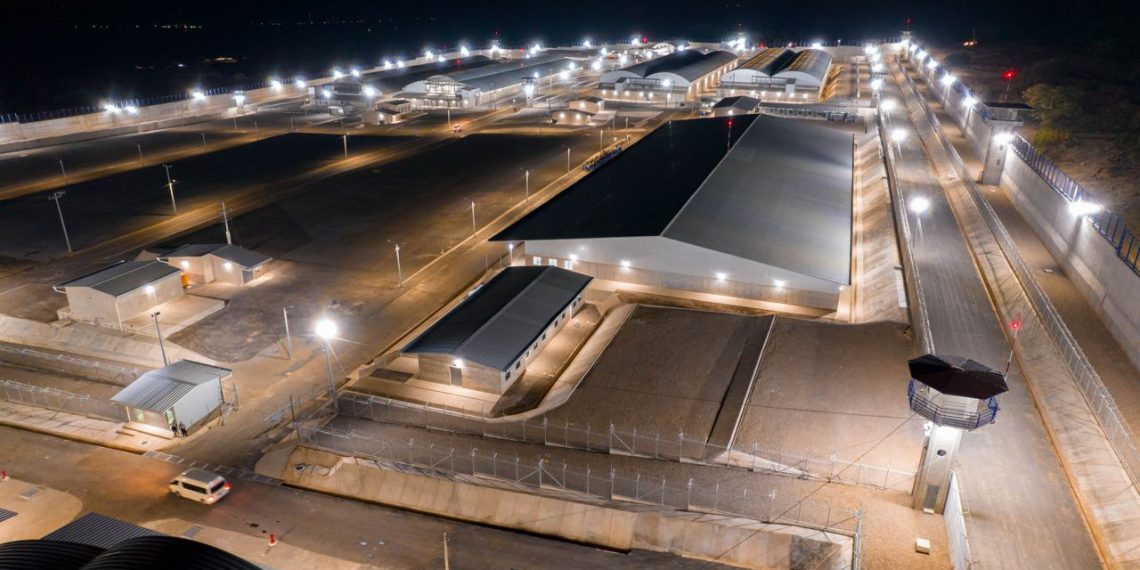
The United States government believes that the 238 migrants recently deported to El Salvador should remain in the country “for the rest of their lives.”
This was stated by Kristi Noem, the Secretary of Homeland Security, during a press conference. The following day, in a televised cabinet meeting, she reiterated the government’s commitment to continue its campaign to deport over 11 million people living in the U.S. without legal immigration status.
“We are confident that the people (sent to El Salvador) should be there, and they should stay there for the rest of their lives,” Noem told a group of reporters on Wednesday.
Despite the Trump administration’s defense of its decision to transfer the migrants to the Terrorism Confinement Center (Cecot), both testimonies from their families and reports from U.S. media outlets have shown that most of those currently detained there have no criminal backgrounds.
International
Italian biologist found dead in Colombia; investigation underway

An Italian scientist has been found dead in Colombia, local authorities confirmed, after body parts were discovered along a trail in the coastal city of Santa Marta on Sunday.
Municipal police said that a bracelet found among the remains belonged to Alessandro Coatti, a biologist who had recently embarked on a journey across South America. Additional human remains were later discovered in two other locations within the city.
According to the police, Coatti had been staying in a local accommodation and was reportedly visiting the scenic Tayrona coastal area on April 5. His whereabouts since that date remain unknown, prompting an urgent investigation.
“There are currently no further details available; the case remains under investigation,” Colombia’s Attorney General’s Office said on Thursday. “It is still unclear what happened or where.”
-

 Internacionales5 days ago
Internacionales5 days agoErik Prince Backs Ecuador’s Daniel Noboa in Fight Against Crime and “Narcoterrorism”
-

 Central America5 days ago
Central America5 days agoGuatemala’s Legal Chief Shot Dead in Parking Lot: Investigation Underway
-

 Central America4 days ago
Central America4 days agoHonduras Hosts CELAC Summit Amid Regional Concern Over U.S. Deportations
-

 International3 days ago
International3 days agoRussia and US to Meet in Istanbul for Diplomatic Talks on April 10
-

 Central America3 days ago
Central America3 days agoAudit Exposes Major Breaches in Panama Canal Port Concession, $300 Million Owed to State
-

 International4 days ago
International4 days agoTeachers in Southern Mexico Bring Education to Stranded Migrant Children
-

 Central America4 days ago
Central America4 days agoMulino and Orsi Highlight Shared Vision After Panama Joins Mercosur as Associate State
-

 Central America4 days ago
Central America4 days agoTrump Administration Asks Supreme Court to Block Return of Deported Salvadoran
-

 Sports3 days ago
Sports3 days agoNeymar Returns to Santos Training After Month-Long Injury Layoff
-

 International1 day ago
International1 day agoMerengue concert turns to mourning as Jet Set collapse claims 136 lives
-
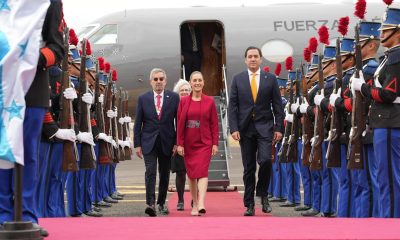
 Central America1 day ago
Central America1 day agoMexico’s president proposes regional economic summit at CELAC
-

 Central America10 hours ago
Central America10 hours agoNicaragua seeks ICJ intervention in Gaza conflict amid escalating violations
-
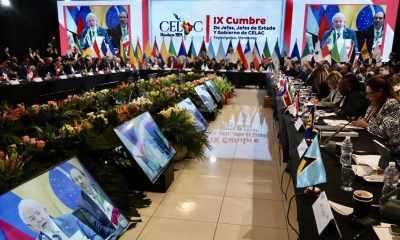
 Central America1 day ago
Central America1 day agoColombia to host fourth EU-CELAC Summit in November
-
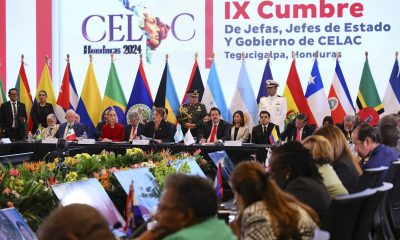
 Central America1 day ago
Central America1 day agoCELAC condemns unilateral sanctions in ‘Tegucigalpa Declaration’
-

 International3 days ago
International3 days agoMaduro Announces Economic Emergency Decree Amid Growing Tensions with the U.S.
-

 International3 days ago
International3 days agoTransgender Student Arrested at Florida Capitol for Using Women’s Restroom Under New State Law
-

 International3 days ago
International3 days agoScience Brings Back the Extinct Direwolf with Successful De-Extinction Project
-

 Central America10 hours ago
Central America10 hours agoU.S. Government says deported migrants should remain in El Salvador for life
-

 International10 hours ago
International10 hours agoItalian biologist found dead in Colombia; investigation underway
-

 International10 hours ago
International10 hours agoMaduro signs Economic Emergency Decree to counter U.S. sanctions on Venezuela















